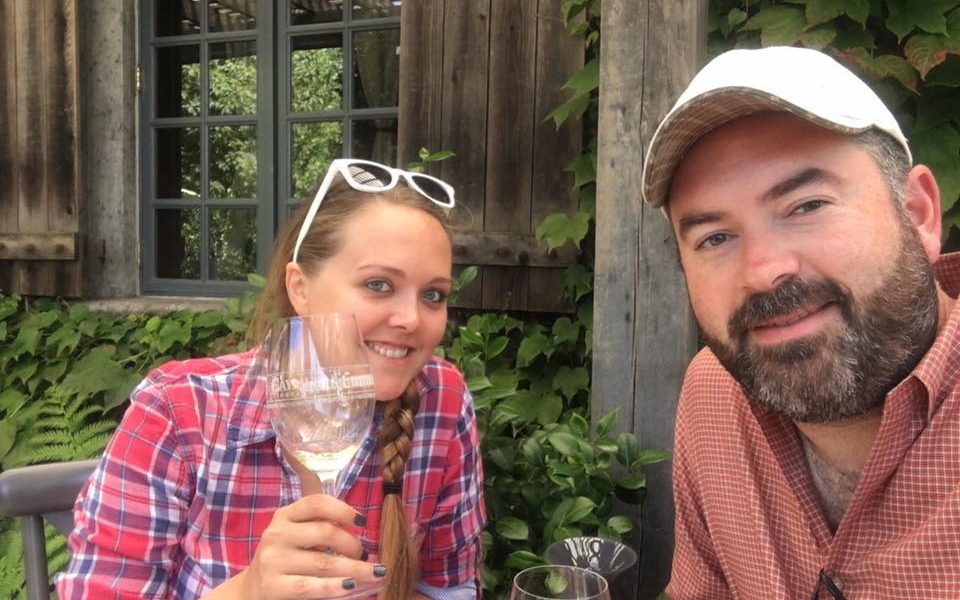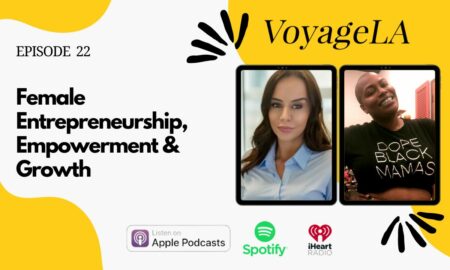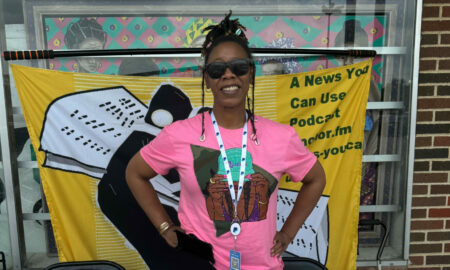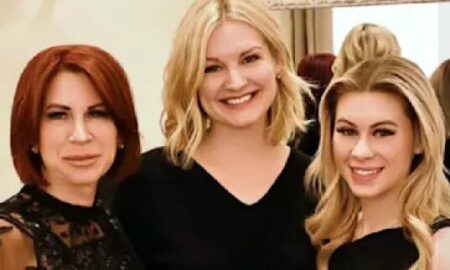

Today we’d like to introduce you to Mark Melton.
So, before we jump into specific questions about the business, why don’t you give us some details about you and your story.
I grew up in Tulsa, Oklahoma. After high school, I didn’t go to college because I was told it was for rich people; not for me. Instead, I got married, and at 21 I found myself with a wife and two kids. The company I worked for filed bankruptcy and laid off nearly 5,000 employees. As a result, after several months of trying to make ends meet, we ran out of money. One of my cars got repossessed, and the bank was foreclosing on my home. Things did not look bright.
I went to Home Depot to purchase a garage sale sign. For the next four days, strangers walked through our modest house and we sold everything we owned. With about $1,500 in hand, we packed up the kids in our remaining car and drove to Dallas. We had no home in Dallas, no jobs, no college education and no real plan. I just thought “I can be homeless in Tulsa where I can’t find work, or I can take my chances in Dallas.” It was a bold move. But one made out of desperation and a lack of better options.
After a few weeks, we found someone in East Dallas willing to lease us an apartment. It was 450 square feet. My infant son slept in the hallway coat closet and my three-year-old daughter slept in the living room. I also found work around that time cold calling would-be investors to sell them what turned out to be really bad oil and gas investments. Money was tight. There were no cell phones or cable TV. We didn’t eat out. My kids went to the county health clinic for vaccinations and we were dependent on the charity of others to have basic necessities like a formula to feed our baby. I recall one day trying to scrounge together a single dollar to buy a sandwich from the 99 cent menu at McDonald’s. It was a fail.
Around that time, my mother suggested I call a man she had met at a conference in Tulsa. He was a Dallas local named Glen Simmons, and it was her understanding that he was fairly wealthy. I called his office and charmed my way through his assistant. He agreed to a short introductory meeting. At the meeting, I explained my situation. “Do you have any college education,” he asked. I replied that I did not. “Any special skills?” “No,” I responded. At that point, he told me that I didn’t have any options and that he couldn’t help me. But he suggested that I enroll myself in school and start putting my energy to better use.
That night I went home, feeling a little discouraged. I mentioned his suggestion to my wife and asked her if she thought she could work while I went to school. She told me that if I was going to school, she was too. So, I continued to work, and we both enrolled at the junior college. We financed the entire endeavor with Pell grants and student loans.
I took as many classes as they would let me. I took classes in the “minimesters” over holiday breaks. I took a full load in the summers. After completing an Associates degree, we moved to Arlington where I enrolled at UT Arlington, working toward a degree in Accounting. I got a job as a bouncer at Cowboys, a 40,000 square foot honkytonk, and a second job during the day working for a local CPA named Doug McCown, who more or less paid me sit in his office and do my homework while answering phones and doing odd jobs. I took classes in the afternoons and evenings but maintained the same academic pace.
We lived in student housing at that point, and our kids attended a nearby daycare that was funded by scholarships from alumni for students with children. Within three and a half years of starting at the junior college, I had completed both my bachelor’s degree in accounting, with honors and a masters degree in taxation. After a short stint at a Fort Worth-based accounting firm, I learned I was accepted to the evening program at SMU’s law school. Fort Worth was too far to commute, so I began looking for work in Dallas, closer to campus. I answered an online ad that just said “interesting tax position for the right person.” Within two weeks, I had a new job as an entry-level tax accountant with Lone Star Funds, a large private equity manager in Dallas.
Over the next four years, I worked during the day and attended law school classes four nights a week. By the time I graduated, I had been promoted at work to a position where I managed the tax compliance and planning functions of a multi-billion dollar private equity fund that had assets in thirteen countries around the globe. Upon graduating from law school, I went to work for Hunton & Williams, a large international law firm, as a tax lawyer where I work on large and complex investment transactions with a focus in cross-border mergers and acquisitions.
It was not lost on me after becoming a lawyer that my journey had taken me from abject poverty to a comfortable financial position. While the tendency was certainly there to pat myself on the back for eight years of extraordinarily hard work, I focused instead on the fact that without the efforts and generosity of many other people, I would not have arrived where I did. If Glen Simmons hadn’t taken a half hour to provide a kid he didn’t even know with some mentorship, I might not have gone to college.
If Doug McCown hadn’t given me a job that allowed me to both study and feed my children, or If UTA alumni hadn’t funded scholarships that allowed me to send my kids to daycare while I attended class, I might not have been able to make it through college. If government-backed student loans weren’t available, I certainly wouldn’t have been able to afford school. And without the CHIPS Medicaid program, my children would have been without the health care they needed.
Recognizing my hard work only yielded results because it was supported by others, I tried to find ways that I could be for others what I had received along the way. At first, it was simple things like speaking at high school career days and giving small seminars on how to enroll in college and apply for grants and loans. From there, I was asked to chair a committee of the Dallas Bar Association that organized lawyers to speak in schools. I volunteered to tutor kids. I joined the junior boards of Big Brother Big Sister and United Way of Dallas, each of which I eventually chaired.
After several years, it occurred to me that for all of the good our local non-profits do, our community still suffered from poverty and unacceptable public education. The problems were systemic and required more than small doses of charity. I became convinced that if these problems are to be solved, it would be done by implementing better policies. I joined with several Dallas business leaders through the Chamber of Commerce and helped form a political action committee that focused on recruiting and supporting better candidates for the Dallas ISD school board.
And I began to get involved in city politics. I was (and am) vocal on issues that impact our city. I’ve worked on more campaigns than I can count, and I’m currently the chairman of the City of Dallas Judicial Nominating Commission, which interviews and recommends the judges that fill our municipal courtrooms. In addition, I’m using that platform to study how our municipal courts work and to recommend much-needed reforms to our criminal justice system.
My path has been non-traditional. And I hope that my efforts will help others beat the odds and find financial stability.
Alright – so let’s talk business. Tell us about Hunton & Williams – what should we know?
Hunton & Williams is a large international law firm. My practice focuses on tax issues encountered by large business organizations and investors. Our clients are typically growing large businesses, and acquiring (or selling) businesses. I help these clients negotiate and execute deals that are tax efficient. As a CPA, in addition to being a tax lawyer, I see the business side of the transactions as well as the legal. My clients appreciate that I am able to understand the details behind what are usually very complex financial, business and legal arrangements.
I also own a bar in the Cedars neighborhood (a few blocks south of Downtown Dallas) called Mac’s Southside. We have a pool, shuffleboard, darts, lots of televisions, an excellent scotch and bourbon selection, and Zalat pizza made fresh in our kitchen. I like to describe it as dive bar plus. It has that comfortable dive bar feel to it, but it’s clean and well maintained. Mac’s has also become a hub for local political thought and discussion. We’ve hosted talks on topics across the spectrum, from Dallas parks and infrastructure to homelessness to local racial political history.
Is there a characteristic or quality that you feel is essential to success?
I’d say it’s a combination of tenacity and coping skills. Some people shut down under pressure or stress. I try to just keep moving forward, even after setbacks. I don’t spend much time, if any, regretting mistakes, lamenting misfortunes, or stewing over wrongs done to me. I quickly identify the next steps and begin to execute whatever plan seems appropriate. It’s that ability to stay calm and think rationally under pressure that allows one to continue to move forward through adversity.
Contact Info:
- Address: 1145 Ross Ave, Ste 3700 Dallas, TX 75202 (Hunton)
1701 S. Lamar St. Dallas, TX 75215 (Mac’s Southside) - Website: https://www.hunton.com/en/people/mark-a-melton.html
- Phone: 214-979-2952
- Email: mmelton@hunton.com
- Facebook: https://www.facebook.com/mark.melton.900
- Twitter: https://twitter.com/markmelton99
- Yelp: https://www.yelp.com/biz/macs-southside-dallas-2
- Other: www.macssouthside.com








Getting in touch: VoyageDallas is built on recommendations from the community; it’s how we uncover hidden gems, so if you know someone who deserves recognition please let us know here.

















